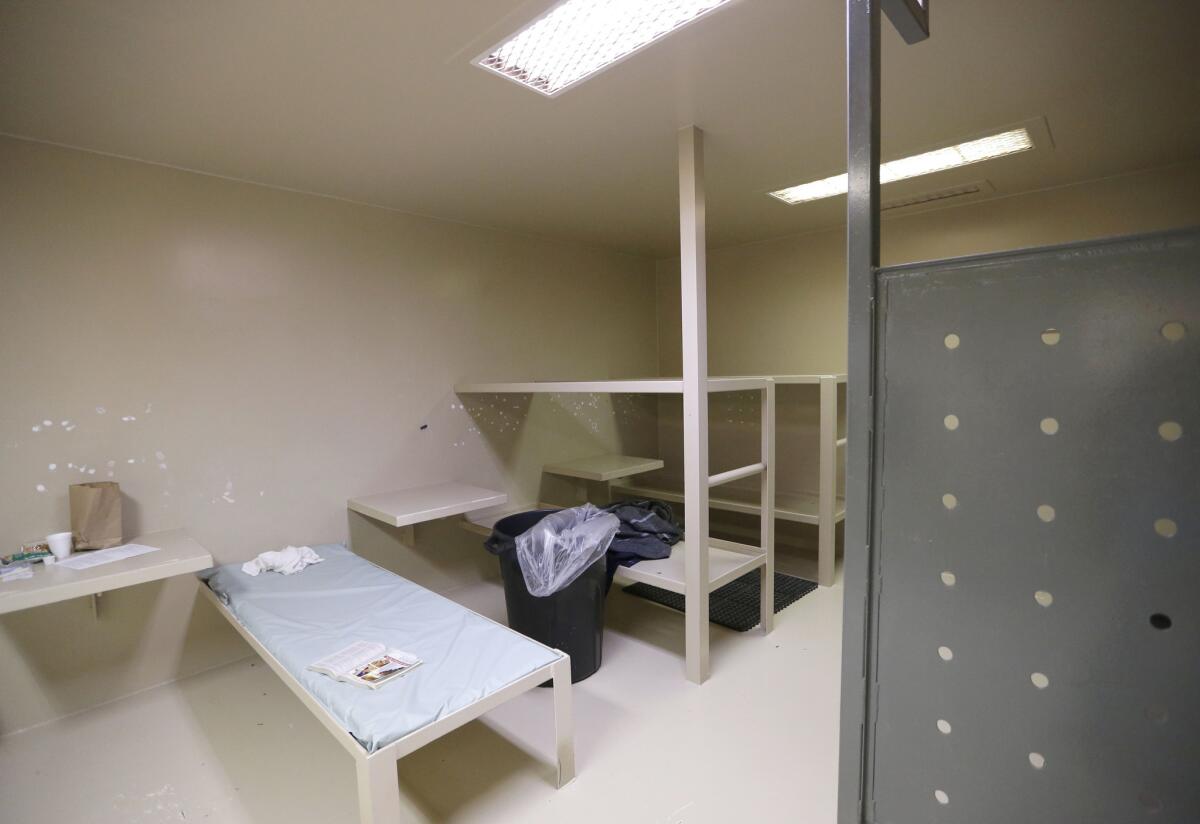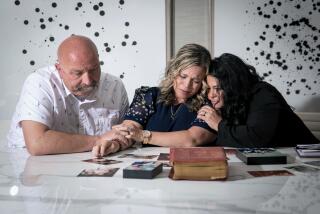Sandra Bland’s autopsy shows no signs of violent homicide, Texas prosecutor says

The Waller County Jail cell in which Sandra Bland was found dead.
The autopsy of Sandra Bland, whose death touched off a furor among activists after her body was found in a Texas jail cell, showed that her injuries were consistent with suicide and she did not have wounds indicating she was the victim of a violent homicide, officials said Thursday.
Bland, whose body was found July 13, took her own life with a plastic trash liner in the Waller County Jail, officials have said. Her family, backed by activists and a campaign on social media, has insisted she would not have killed herself and has called on the Justice Department to investigate.
The family did not respond to an emailed request for comment on the autopsy’s findings. The family has said it wants its own experts to examine the body and conduct forensic tests.
The autopsy was performed by coroners in neighboring Harris County and found that the cause of Bland’s death was hanging and the manner of death was suicide, said Warren Diepraam, Waller County’s first assistant district attorney. “The evidence that we’ve reviewed up to this point supports those findings,” he told a televised news conference Thursday.
Using a PowerPoint presentation with graphic pictures, Diepraam walked through the findings, saying the physical evidence supported suicide and the lack of violent wounds argued against homicide.
For example, the hyoid bone in her neck — which often shatters in a violent homicide — was unbroken and intact. The ligature mark from the strangling was regular rather than irregular, as would have happened if Bland had been attacked, Diepraam said.
No injuries were found on Bland’s hands and there were no signs of injuries to her inner eyelids or the lining of her mouth, other possible indicators of a violent struggle, Diepraam said.
“In a violent homicide or a murder,” Diepraam said, “it is typical to see some sort of injuries on the person’s hand, defensive injuries.” But the medical examiners “found no evidence whatsoever of any injuries.”
Diepraam said that the toxicology tests showed marijuana in Bland’s body. There was evidence of about 30 cuts on her left arm. The wounds were two to four weeks old and were consistent with being self-inflicted, while the marijuana could have had an effect on her emotional state, he said.
More tests are pending to determine the quantity of marijuana, which may show whether Bland had used a large amount of marijuana before her arrest or whether the drug had been used in jail. There is no evidence that Bland used any drug while incarcerated, the prosecutor said.
“I can understand why this death is being viewed as suspicious,” Waller County Dist. Atty. Elton Mathis told reporters. He said the autopsy report, which may be made public Friday, is another piece of evidence as investigators examine her death and arrest three days earlier by Trooper Brian T. Encinia.
No decision has been made on whether to charge anyone in the jail or Encinia, who pulled Bland over for failing to signal while changing lanes in Prairie View, Texas, about 60 miles from Houston. The pair argued and scuffled, according to a video of the arrest.
“I will light you up!” Encinia said, while pointing a stun gun at Bland, according to the video.
Later, when a female officer arrived at the scene, Encinia said Bland “started yanking away, then kicked me, so I took her straight to the ground.” In his arrest affidavit, Encinia said he had pain in his right leg and suffered small cuts to his right hand.
Bland was arrested on suspicion of assaulting a public servant, a felony. She was taken to the Waller County Jail and held in lieu of $5,000 bail.
At one point on the video, Bland is heard saying that the trooper had slammed her head against the ground, but the autopsy found no injuries consistent with that claim, Diepraam said.
The autopsy did find abrasions on Bland’s wrist, wounds that were consistent with being handcuffed, and abrasions on her right shoulder, which were consistent with someone using force against her back during the arrest.
Bland’s funeral has been scheduled for Saturday in suburban Chicago.
Much of the attention in recent days has focused on Bland’s emotional and physical state. Her family and friends have insisted that Bland was upbeat about getting a new job in Prairie View and never would have taken her own life.
Law enforcement officials this week released booking documents in which Bland said she had attempted suicide in 2015, and that she had epilepsy. She also said she was taking medication for the epilepsy.
The Bland family’s lawyer, Cannon Lambert, told reporters at a televised news conference Wednesday there was no evidence that Bland had attempted suicide or been treated for depression.
MORE ON SANDRA BLAND
Sandra Bland’s arrest video: What it shows
Jail video points to why Sandra Bland’s family says her death is a mystery
Can a police officer order you out of your car? Experts weigh in on Sandra Bland case
More to Read
Sign up for Essential California
The most important California stories and recommendations in your inbox every morning.
You may occasionally receive promotional content from the Los Angeles Times.












